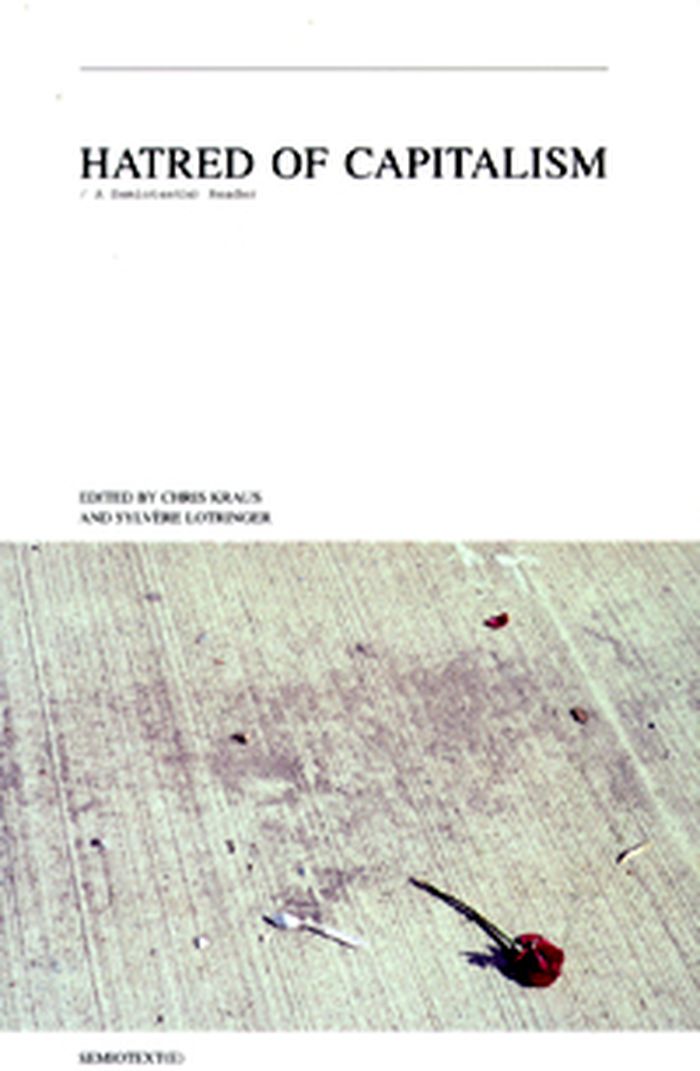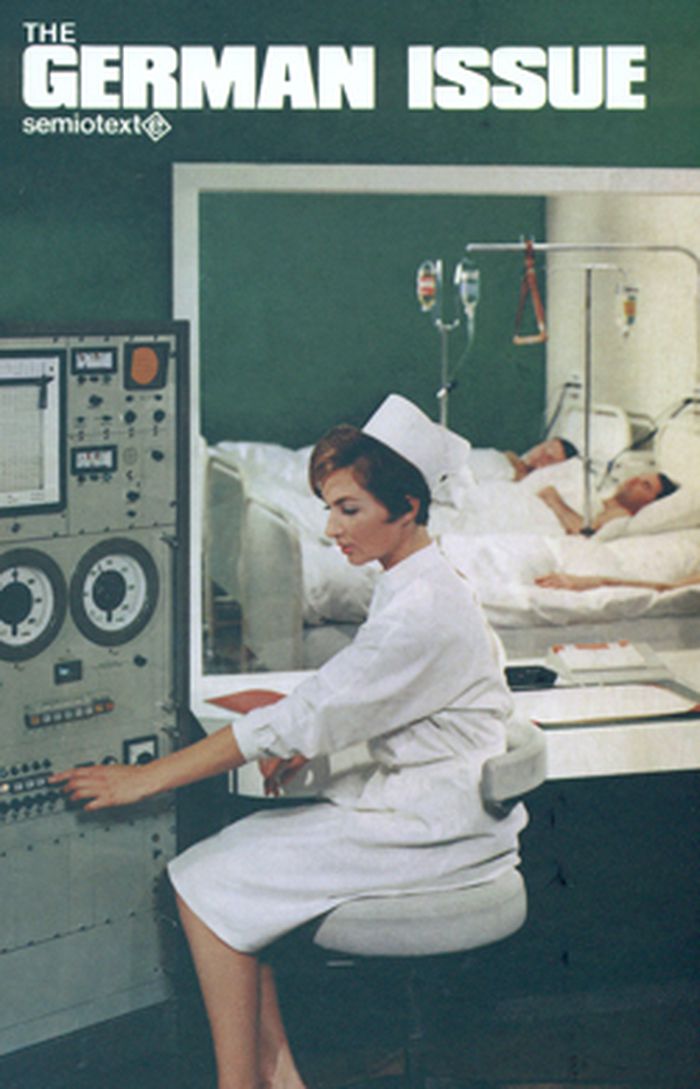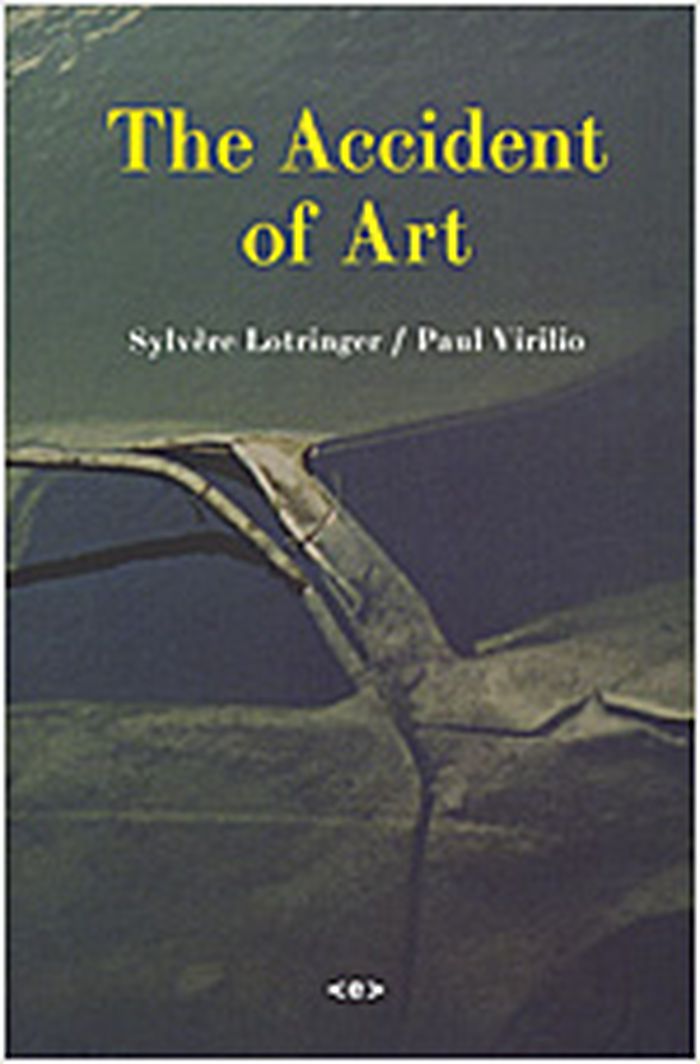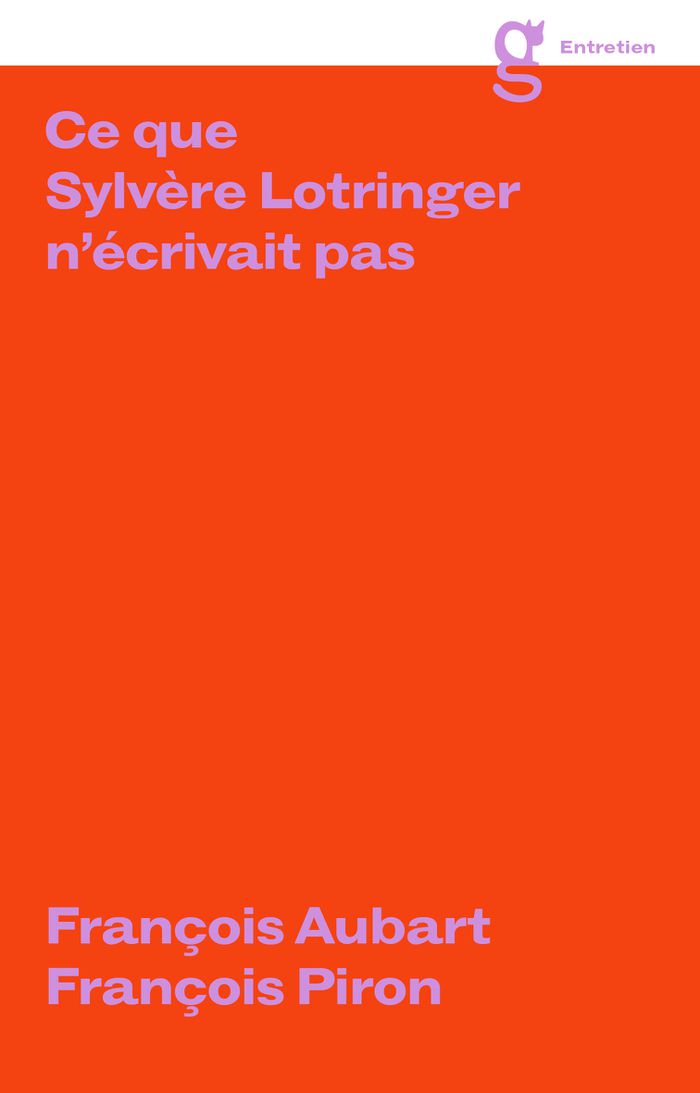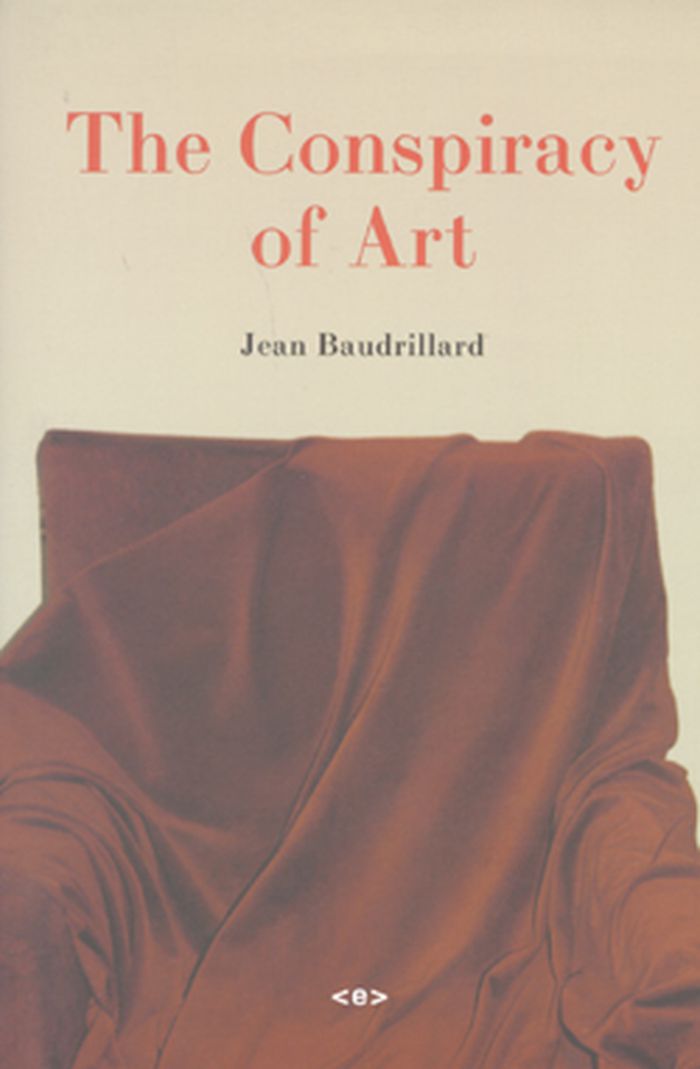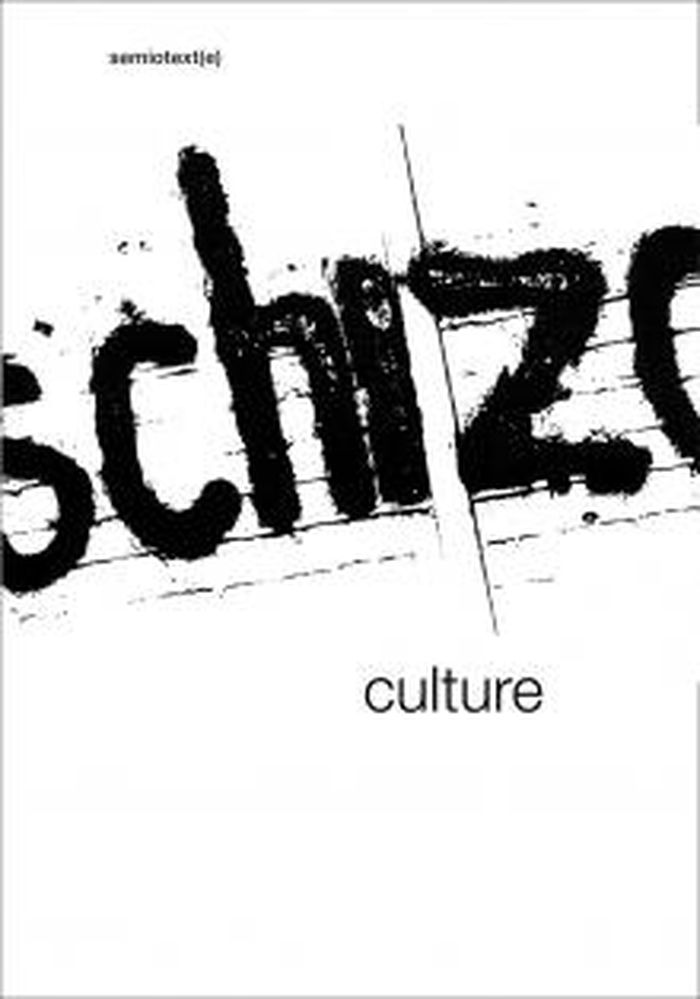Hatred of Capitalism
$20.95
(available to order)
Summary:
Compiled in 2001 to commemorate the passing of an era, Hatred of Capitalism brings together highlights of Semiotext(e)'s most beloved and prescient works. Semiotext(e)'s three-decade history mirrors the history of American thought. Founded by French theorist and critic Sylvere Lotringer as a scholarly journal in 1974, Semiotext(e) quickly took on the mission of melding(...)
Critical Theory
November 2005, Los Angeles, New York
Hatred of Capitalism
Actions:
Price:
$20.95
(available to order)
Summary:
Compiled in 2001 to commemorate the passing of an era, Hatred of Capitalism brings together highlights of Semiotext(e)'s most beloved and prescient works. Semiotext(e)'s three-decade history mirrors the history of American thought. Founded by French theorist and critic Sylvere Lotringer as a scholarly journal in 1974, Semiotext(e) quickly took on the mission of melding French theory with the American art world and punk underground. Its Foreign Agents, Native Agents, Active Agents and Double Agents imprints have brought together thinkers and writers as diverse as Gilles Deleuze, Assata Shakur, Bob Flanagan, Paul Virillio, Kate Millet, Jean Baudrillard, Michelle Tea, William S. Burroughs, Eileen Myles, Ulrike Meinhof, and Fanny Howe. In Hatred of Capitalism, editors Kraus and Lotringer bring these people together in the same volume for the first time.
Critical Theory
The German issue
$34.95
(available to order)
Summary:
Like a time capsule, The German Issue brings together all the major "issues" that were being debated on both sides of the Atlantic—which eventually found their abrupt resolution in 1989 with the fall of the Berlin Wall. It involved the most important voices of the period—from writers and filmmakers to anthropologists, activists and poets, terrorists and philosophers:(...)
The German issue
Actions:
Price:
$34.95
(available to order)
Summary:
Like a time capsule, The German Issue brings together all the major "issues" that were being debated on both sides of the Atlantic—which eventually found their abrupt resolution in 1989 with the fall of the Berlin Wall. It involved the most important voices of the period—from writers and filmmakers to anthropologists, activists and poets, terrorists and philosophers: Joseph Beuys, Michel Foucault, Christo, Christa Wolf, Walter Abish, Alexander Kluge, Paul Virilio, Ulrilke Meinhof, William Burroughs, Jean Baudrillard, Hans Magnus Enzenberger, Maurice Blanchot, Hans Jürgen Syberberg, Heidegger, André Gorz, Helke Sander. Opening with Christo's "Wrapping Up of Germany" and the celebrated dialogue between East German dramaturge Heiner Müller and Sylvère Lotringer on the Wall ("Mauer"), since published in many languages, The German Issue offers a first-hand account of the Western world on the threshold of a major global mutation. It also embodies at its best Semiotext(e)'s tenacious effort to establish a creative bridge between art and intellect, culture and politics, Europe and America.
Critical Theory
The accident of art
$18.95
(available to order)
Summary:
Urbanist and technological theorist Paul Virilio trained as a painter, studying under Henri Matisse, Georges Braque, Bazaine and de Stael. In The Accident of Art, his third extended conversation with Sylvère Lotringer, Virilio addresses the situation of art within technological society for the first time. This book completes a collaborative trilogy the two began in 1982(...)
Architectural Theory
May 2003, Cambridge, Mass.
The accident of art
Actions:
Price:
$18.95
(available to order)
Summary:
Urbanist and technological theorist Paul Virilio trained as a painter, studying under Henri Matisse, Georges Braque, Bazaine and de Stael. In The Accident of Art, his third extended conversation with Sylvère Lotringer, Virilio addresses the situation of art within technological society for the first time. This book completes a collaborative trilogy the two began in 1982 with Pure War and continued with Crepuscular Dawn, their 2002 work on architecture and biotechnology. In The Accident of Art, Virilio and Lotringer argue that a direct relation exists between war trauma and art. Why has art failed to reinvent itself in the face of technology, unlike performing art? Why has art simply retreated into painting, or surrendered to digital technology? Accidents, Virilio claims, can free us from speed's inertia. As technological catastrophes, accidents are inventions in their own right.
Architectural Theory
$29.00
(available in store)
Summary:
En 1974 à New York, Sylvère Lotringer, un jeune philosophe français fraichement engagé à Columbia University, décide de démarrer une revue avec ses étudiant·e·s. Semiotext(e) devient rapidement une courroie de transmission entre les divers courants de la pensée critique de l'après 68 français et les États-Unis et s'émancipe de l'université pour s'ouvrir sur toutes les(...)
Ce que Sylvère Lotringer n'écrivait pas
Actions:
Price:
$29.00
(available in store)
Summary:
En 1974 à New York, Sylvère Lotringer, un jeune philosophe français fraichement engagé à Columbia University, décide de démarrer une revue avec ses étudiant·e·s. Semiotext(e) devient rapidement une courroie de transmission entre les divers courants de la pensée critique de l'après 68 français et les États-Unis et s'émancipe de l'université pour s'ouvrir sur toutes les contre-cultures du moment. Le sémioticien Lotringer se réinvente en éditeur, en intervieweur, mais aussi en cinéaste et en catalyseur de toute une scène artistique et intellectuelle alternative qui contribue, un peu par hasard, à instaurer les « Cultural Studies » au cours des années 1980. Avec l'autrice Chris Kraus, Lotringer ouvre la maison d'édition Semiotext(e) à la poésie et à la fiction de nombreuses autrices américaines. Dans cet entretien au long cours donné à une autre collectivité étudiante (un groupe d'étudiant·es de l'école nationale supérieure des beaux-arts de Lyon, animé par François Aubart et François Piron), Sylvère Lotringer raconte l'histoire d'une aventure éditoriale encore vivante aujourd'hui et des manières de faire qu'il a développées pour maintenir pendant 40 ans une ligne politique fidèle en amitiés et attentive aux pulsations du monde contemporain.
Critical Theory
$24.50
(available to order)
Summary:
In The Conspiracy of Art, Baudrillard questions the privilege attached to art by its practitioners. Art has lost all desire for illusion: feeding back endlessly into itself, it has turned its own vanishment into an art unto itself. Far from lamenting the "end of art," Baudrillard celebrates art's new function within the process of insider-trading. Spiraling from aesthetic(...)
October 2005, Cambridge, London
The conspiracy of art: manifestos, interviews, essays
Actions:
Price:
$24.50
(available to order)
Summary:
In The Conspiracy of Art, Baudrillard questions the privilege attached to art by its practitioners. Art has lost all desire for illusion: feeding back endlessly into itself, it has turned its own vanishment into an art unto itself. Far from lamenting the "end of art," Baudrillard celebrates art's new function within the process of insider-trading. Spiraling from aesthetic nullity to commercial frenzy, art has become transaesthetic, like society as a whole. Conceived and edited by life-long Baudrillard collaborator Sylvère Lotringer, The Conspiracy of Art presents Baudrillard's writings on art in a complicitous dance with politics, economics, and media. Culminating with "War Porn," a scathing analysis of the spectacular images from Abu Ghraib prison as a new genre of reality TV, the book folds back on itself to question the very nature of radical thought.
Schizo culture
$42.00
(available to order)
Summary:
The legendary 1975 “Schizo-Culture” conference, conceived by the early Semiotext(e) collective, began as an attempt to introduce the then-unknown radical philosophies of post-’68 France to the American avant-garde. The conference was equally important on a political level, and brought together a diverse group of activists, thinkers, patients, and ex-cons in order to(...)
Schizo culture
Actions:
Price:
$42.00
(available to order)
Summary:
The legendary 1975 “Schizo-Culture” conference, conceived by the early Semiotext(e) collective, began as an attempt to introduce the then-unknown radical philosophies of post-’68 France to the American avant-garde. The conference was equally important on a political level, and brought together a diverse group of activists, thinkers, patients, and ex-cons in order to address the challenge of penal and psychiatric institutions. The “Schizo-Culture” issue of the Semiotext(e) journal came three years later. Designed by a group of artists and filmmakers, it documented the chaotic creativity of an emerging downtown New York scene, and offered interviews with artists, theorists, writers, and No Wave and pre-punk musicians together with new texts from Deleuze, Foucault, R. D. Laing, and other conference participants. This slip-cased edition includes The Book: 1978, a facsimile reproduction of the original Schizo-Culture publication; and The Event: 1975, a previously unpublished and comprehensive record of the conference that set it all off. It assembles many previously unpublished texts.
Critical Theory
